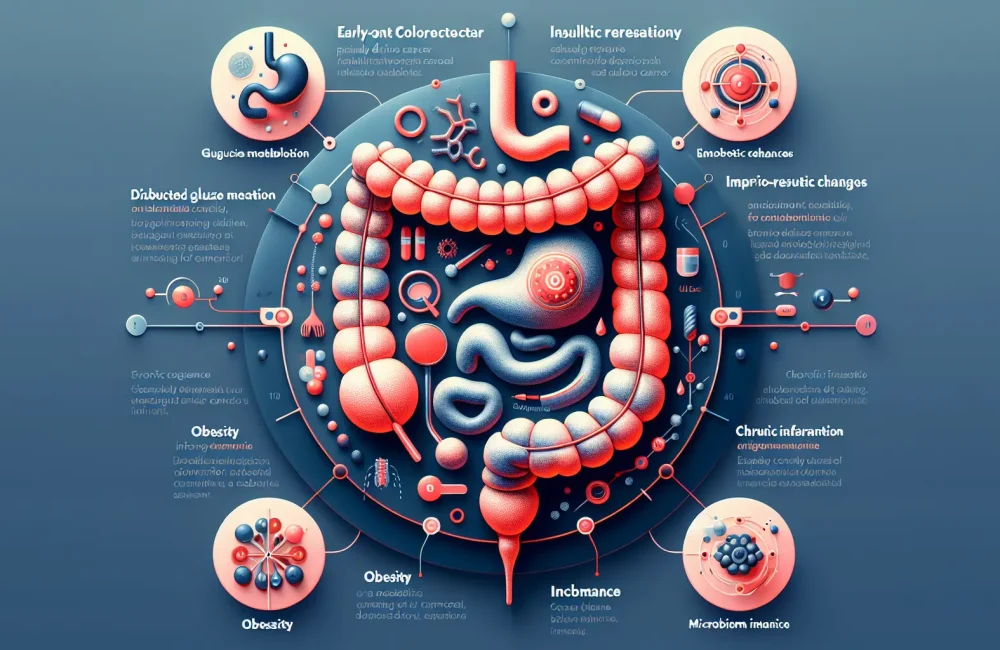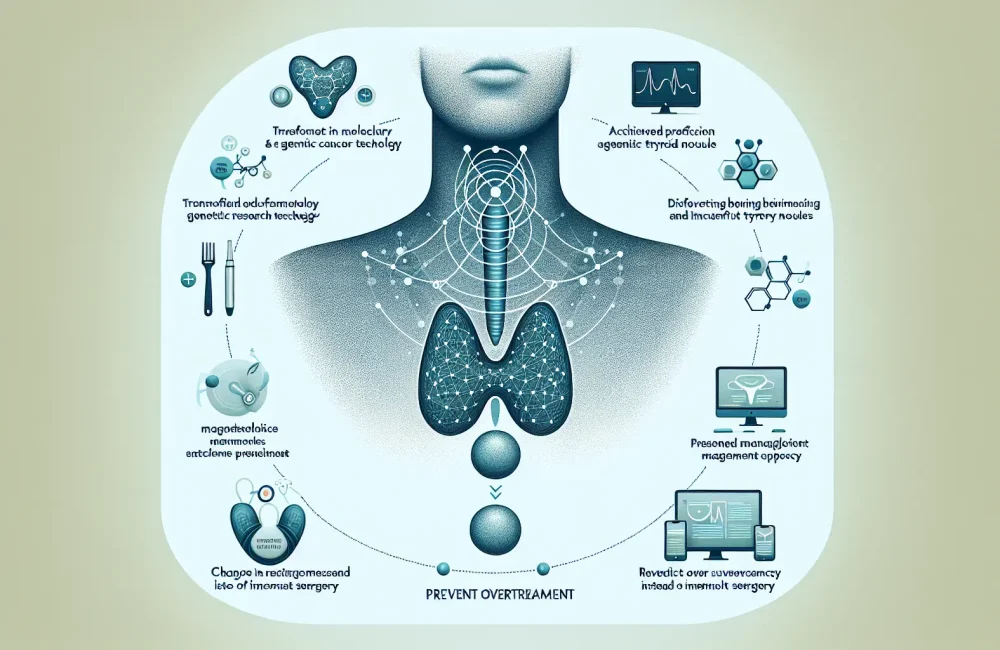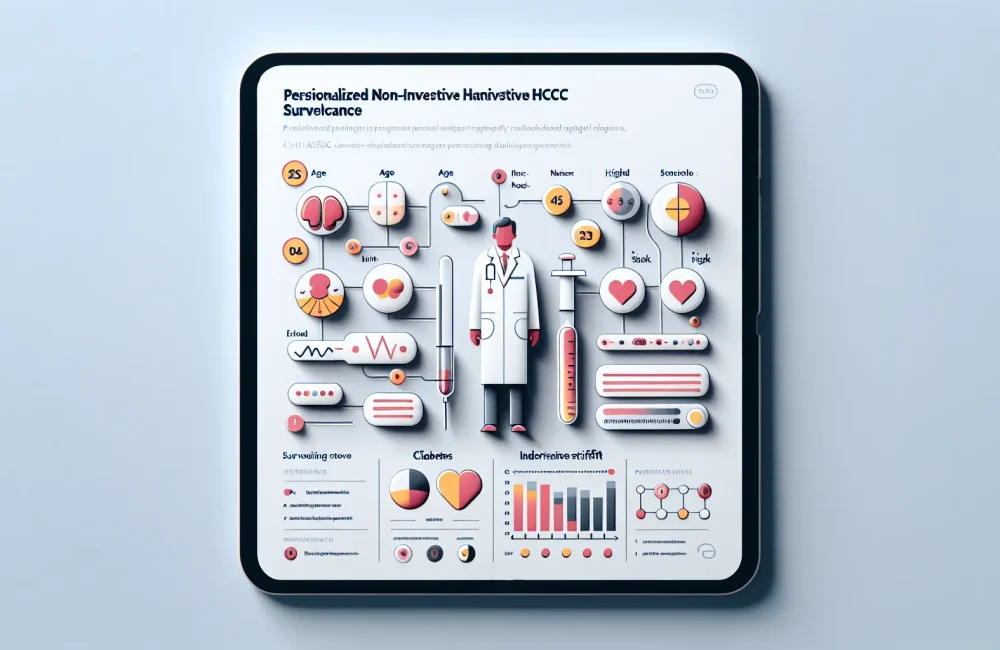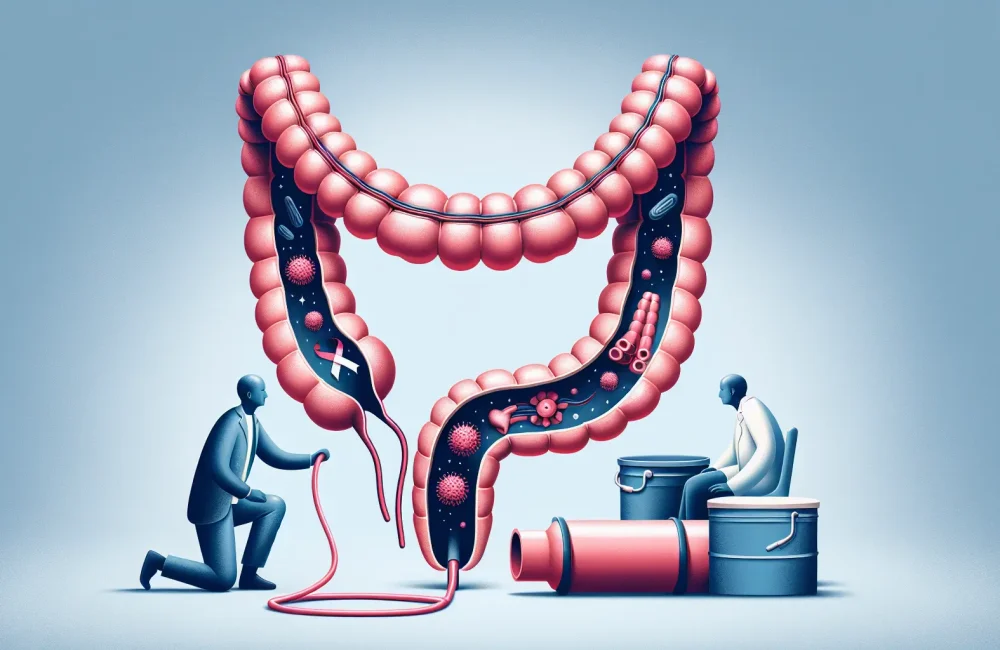By CAFMI AI From Nature Reviews Endocrinology
Distinct Metabolic Drivers in Early-Onset Colorectal Cancer
Early-onset colorectal cancer (EOCRC), diagnosed before age 50, is increasingly recognized as a unique clinical and biological entity, distinct from the more common late-onset colorectal cancer associated with aging. Unlike traditional colorectal cancer, EOCRC shows rising incidence globally, highlighting an urgent clinical concern especially in younger populations. Emerging evidence strongly supports that metabolic dysregulation is a pivotal factor in the pathogenesis of EOCRC. Key metabolic abnormalities identified include disrupted glucose metabolism, insulin resistance, and obesity, all of which contribute to a systemic metabolic environment conducive to cancer development. These metabolic disturbances are not merely correlative but play active roles in promoting colorectal carcinogenesis through pathways involving chronic inflammation, epigenetic changes, and microbiome imbalances. Understanding these specific metabolic drivers shifts the clinical perspective of EOCRC away from aging-related carcinogenesis to a metabolic disease model, necessitating unique approaches in screening, diagnosis, and management for younger patients.
Clinical Implications and Challenges in Managing EOCRC
The recognition of EOCRC as a metabolic disorder carries significant clinical implications for healthcare professionals, particularly those in primary care and oncology sectors in the United States. One of the foremost challenges is early detection. Because EOCRC affects younger adults who traditionally fall outside routine colorectal cancer screening guidelines, many cases are diagnosed at advanced stages, leading to poorer prognoses. This delay underscores the urgent need for updating screening policies and risk assessment strategies that integrate metabolic risk profiling such as obesity metrics, insulin resistance indicators, and lifestyle factors. Prevention strategies focused on correcting metabolic abnormalities—like weight management, improving insulin sensitivity through lifestyle modifications, and managing diet—may offer promising avenues to reduce EOCRC incidence. Furthermore, therapeutic options are being explored to target metabolic pathways involved in tumor progression. These include interventions aimed at reducing inflammation, modulating epigenetic marks, and restoring balanced gut microbiota. These evolving strategies reinforce the importance of multidisciplinary care models that incorporate endocrinologists, dietitians, oncologists, and primary care providers to optimize patient outcomes.
Future Directions in Research and Treatment of EOCRC
Ongoing research seeks to deepen the understanding of metabolic dysregulation mechanisms driving EOCRC and translate these findings into innovative treatments. Advances in molecular profiling and metabolomics are expected to identify novel biomarkers for early diagnosis and targeted therapies. New clinical trials are investigating metabolic modulators and combination therapies to improve survival rates and quality of life in EOCRC patients. Additionally, public health initiatives aimed at raising awareness and promoting lifestyle changes among younger populations are crucial for primary prevention. Collaborative efforts between researchers, clinicians, and policymakers are needed to develop personalized medicine approaches that address the unique metabolic landscape of EOCRC, fostering improved screening protocols, therapeutic strategies, and patient education in the coming years.
Read The Original Publication Here






